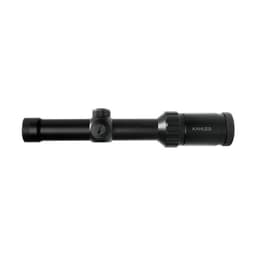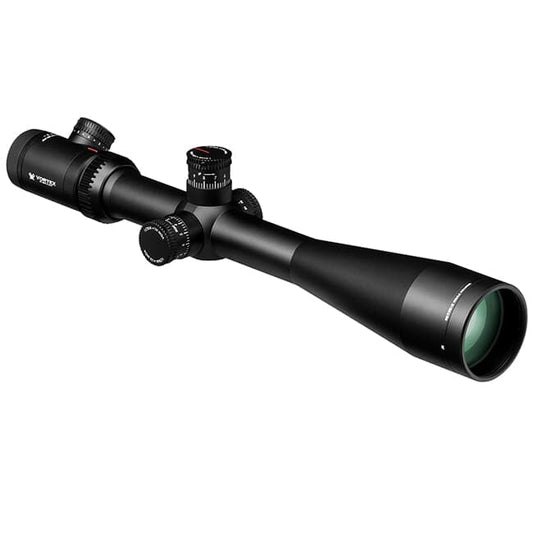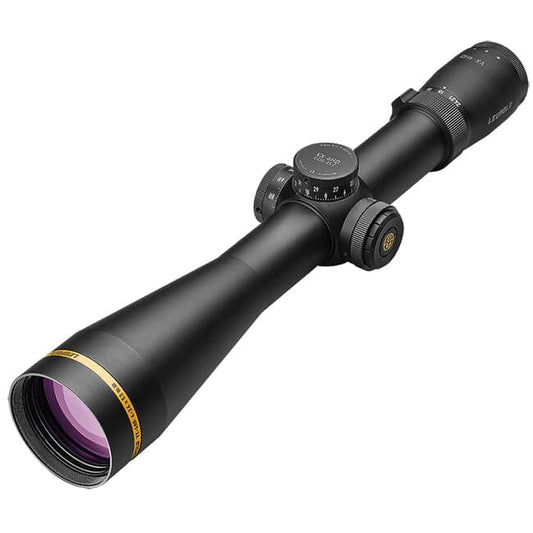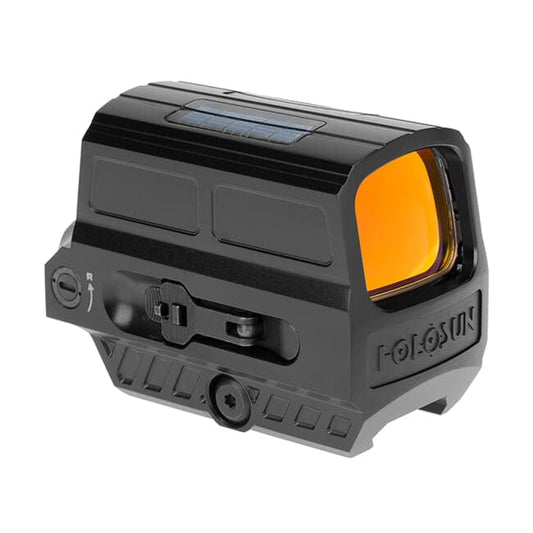

Kahles K16i 1-6x24 3GR Reticle Riflescope offers a versatile magnification range of 1-6x, making it suitable for both close-quarter engagements and longer shots. Built with a robust design, this riflescope is resistant to shock, water, and fog, ensuring reliable performance in various environmental conditions. The illuminated 3GR reticle provides a clear aiming point in diverse lighting situations, enhancing target acquisition speed. Weighing just 16.9 oz, it combines durability with a lightweight profile, ideal for tactical training and competition scenarios.
Featuring a second focal plane reticle, the K16i maintains consistent subtensions at all magnification levels, allowing precise holdovers and adjustments. The integrated throw lever enables quick changes in magnification, facilitating seamless transitions between targets. With high-definition lens coatings, this scope delivers exceptional brightness and clarity, crucial for discerning targets in low-light situations.
Features:
- CLEAR OPTICS: Outstanding edge-to-edge clarity for superior sight picture during shooting.
- LARGEST FIELD OF VIEW: Expansive view of the target area improves tracking and accuracy.
- TRUE DAYTIME ILLUMINATION: Optimized brightness for use in varying light conditions.
- FAST MAGNIFICATION ADJUSTMENTS: Integrated throw lever allows quick, smooth changes on the fly.
- DURABLE CONSTRUCTION: Designed to withstand harsh environments, ensuring long-term reliability.
- LIGHTWEIGHT DESIGN: Weighs only 16.9 oz, making it easy to carry without compromising performance.
- SECOND FOCAL PLANE RETICLE: Maintains accurate holdover across all magnification levels.
- PRECISION ADJUSTMENTS: .1 Mil/Click turret adjustments for enhanced accuracy at distance.
Technical Specifications Table
| Specification | Details |
|---|---|
| Magnification Range | 1-6x |
| Lens Diameter | 24mm |
| Weight | 16.9 oz. |
| Eye Relief | 3.74" |
| Field of View | 138.8 - 26.2' (ft./100 yd.) |
| Reticle Position | Second Focal Plane |
| Scope Length | 10.5" |
| Reticle Details | 3GR Reticle |
What’s in the Box?
- Lens covers
- Padded case
- Neck strap
Customer Reviews
"The clarity and field of view are truly impressive. Perfect for my long-range competitions!"
"I've used many scopes, but the Kahles K16i is by far the best for quick target acquisition."
"Durable and reliable, this scope never disappoints in the field."
FAQ
How does the K16i compare to other riflescopes?
Kahles K16i stands out for its optical clarity and wide field of view, making it an excellent choice for rapid target acquisition. Additionally, its lightweight design and rugged build provide an advantage in competitive and tactical environments.
What maintenance is required for the K16i?
To maintain optimal performance, clean the lenses with a soft cloth regularly. Ensure that turret adjustments are free from debris, and store the scope in a cool, dry location to prevent damage.
Similar Models
If you're interested in high-performance optics, explore our complete Kahles lineup. Consider models like the Kahles K318i for advanced long-range precision or the Kahles K624i for unmatched versatility. Browse our collection to find the perfect scope tailored to your shooting needs.
You May Also Like
Here’s some of our most similar products people are buying. Click to discover trending style.








